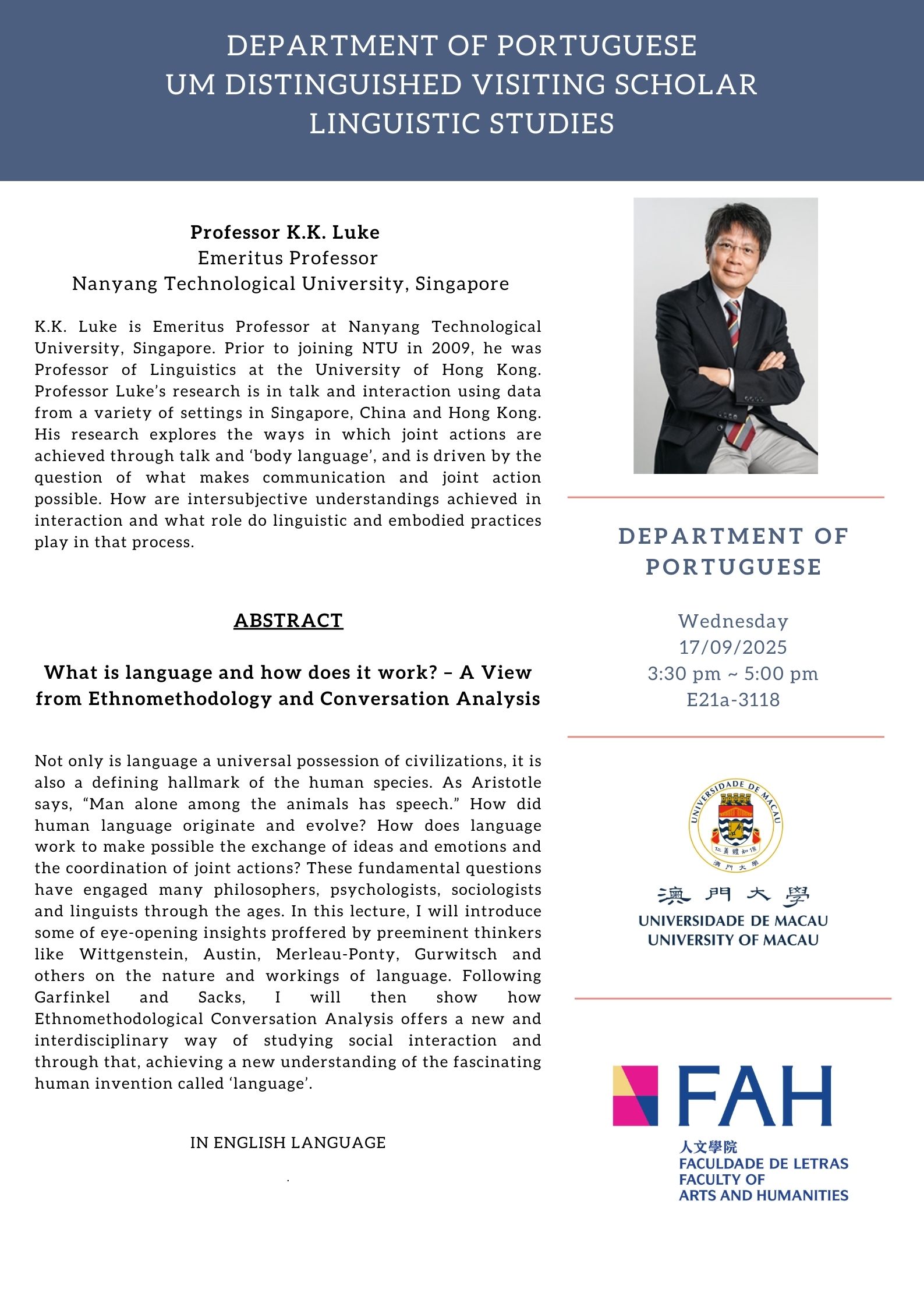

UM-FAH-DPORT: Seminar by UMDVS Professor K.K. Luke on “What is language and how does it work? – A View from Ethnomethodology and Conversation Analysis”
2025-09-17 @ 3:30 pm ~ 5:00 pm
Dear Professors and Students,
We are most pleased to invite all to attend the following Seminar by UM Distinguished Visiting Scholar Professor K.K. Luke, Emeritus Professor at Nanyang Technological University, Singapore, on “What is language and how does it work? – A View from Ethnomethodology and Conversation Analysis”, on Wednesday, 17/09/2025, at 3:30pm in room E21a-3118.
BIO
Professor K.K. Luke
Emeritus Professor
Nanyang Technological University, Singapore
K.K. Luke is Emeritus Professor at Nanyang Technological University, Singapore. Prior to joining NTU in 2009, he was Professor of Linguistics at the University of Hong Kong. Professor Luke’s research is in talk and interaction using data from a variety of settings in Singapore, China and Hong Kong. His research explores the ways in which joint actions are achieved through talk and ‘body language’, and is driven by the question of what makes communication and joint action possible. How are intersubjective understandings achieved in interaction and what role do linguistic and embodied practices play in that process.
ABSTRACT
What is language and how does it work? – A View from Ethnomethodology and Conversation Analysis
Not only is language a universal possession of civilizations, it is also a defining hallmark of the human species. As Aristotle says, “Man alone among the animals has speech.” How did human language originate and evolve? How does language work to make possible the exchange of ideas and emotions and the coordination of joint actions? These fundamental questions have engaged many philosophers, psychologists, sociologists and linguists through the ages. In this lecture, I will introduce some of eye-opening insights proffered by preeminent thinkers like Wittgenstein, Austin, Merleau-Ponty, Gurwitsch and others on the nature and workings of language. Following Garfinkel and Sacks, I will then show how Ethnomethodological Conversation Analysis offers a new and interdisciplinary way of studying social interaction and through that, achieving a new understanding of the fascinating human invention called ‘language’.
IN ENGLISH LANGUAGE

